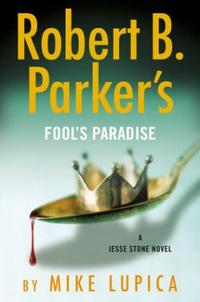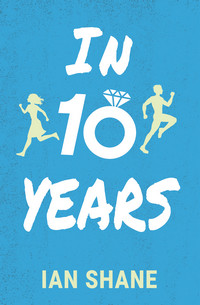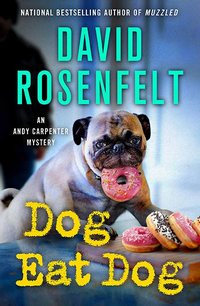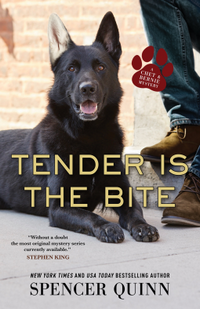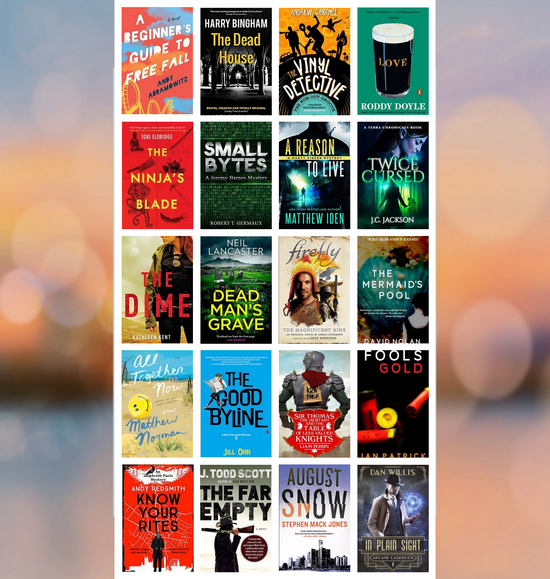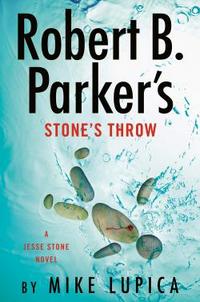 |
Robert B. Parker’s Stone’s Throwby Mike Lupica eARC, 336 pg. Read: August 17-18, 2021 |

What’s Stone’s Throw About?
The mayor of Paradise is found dead at the site of a contentious land deal—it’s one of the most sought-after properties in Paradise, and the City is preparing to weigh in and deciding which of two buyers get to put a casino on it—while several citizens are trying to block the sale at all. The mayor is clearly sympathetic to the anti-sale voices, but it doesn’t look like he’s going to be able to do anything to stop it going forward.
And then he apparently commits suicide on that piece of real estate. Jesse’s not so sure about the suicide part, however, it doesn’t make sense to him for several reasons—his friendship with the mayor is just one of them (the fact that the left-handed man seemingly used his right hand to shoot himself would be another).
Jesse just has to decide who has the most motive to kill him—one of the buyers? The seller? The anti-sale group?
Then the leader of the conservation movement goes missing, and his girlfriend is worried. Then it turns out that Wilson Cromartie—Crow—is working for one of the casino builders. He and the Paradise Police Department have a very shaky history—his criminal past (all beyond the statute of limitations) makes Jesse dis-inclined to trust him, no matter how much assistance he rendered in finding a missing girl later. Is Crow on the side of angels this time, or could he be behind the mayor’s death?
In a case that clearly calls for someone to “follow the money” there’s so much of it flying around that it’d be easy to get lost trying that, there are no easy answers for Jesse and the rest of the PPD.
Molly
From the beginning of the series, Molly Crane has been one of the highlights of the books and of the Paradise Police Department. She’s loyal, competent, and has a big heart. She’s stood by Jesse when things were at their worst for him—covering for him as much as she could. She’s almost too perfect—except for the one time she slept with Crow. That’s pretty much the only time she’s done something wrong.
And since then—at least once per book*—Jesse has brought that transgression up. Every author—Parker, Brandman**, Coleman, and now Lupica—has had Jesse throw this in her face regularly. It’s always bothered me that it’s so constant, so frequent—the woman beats herself up for it, she’s been so good to Jesse, and this is how he treats her?
* As far as I remember, I could be wrong about that, I doubt there’s been more than 2 books without it.
** I honestly remember so little about the Brandman novels, I only assume he followed suit.
And now, Crow is back—and he and Molly interact a bit, both with others around and one-on-one. Without getting into anything, I hope that this allows Molly to get past this act of infidelity—and that Jesse stops bringing it up. Really, there’s an opportunity for closure here, and I hope Lupica takes it.
Talkin’ Baseball
I always liked that Parker wrote Jesse as someone who became a cop not because he had the drive to see justice done, to serve and protect, etc.—but because he had to re-evaluate his life after his baseball career-ending injury and then came to the career in law enforcement.
Parker treated this well, in a “road not taken” kind of way. Coleman did a good job with it—although Blind Spot was more about being part of a team, more than the sport. But Lupica? Lupica really knows how to write about this part of Jesse’s life. He has Jesse think about this a lot in the first chapter and I put in my notes, “this is the best passage in Lupica’s Parker books.” And then it comes up later in the book, too. I don’t know if it’s all the sports books in Lupica’s past, just a better insight into the mindset of the baseball player, or what—but this book has the best usage of Jesse’s former career that this twenty-book series has had.
So, what did I think about Stone’s Throw?
I wasn’t crazy about this at the beginning—it was always good, but I didn’t get sucked in right away. I also wasn’t crazy about the way that Crow was being used—it reminded me of the way that Parker took some of the danger away from Vinnie Morris, Bobby Horse, and Chollo after their initial appearances. But it started to grow on me the further I got into it—and by the last half, I was invested as I could’ve hoped to be.
And even if I wasn’t—just being back in Paradise with Jesse, Suit, and Molly is good enough.
Lupica’s got the voices down, he understands Paradise, he gets the cast of characters right and this book feels like he’s been writing Stone novels for more years than he has—I had to remind myself that this is only his second time with this series. I’d have easily believed this is the fifth.
Whether you’re new to Jesse Stone, or you’ve been reading them since the beginning, this is a novel that will entertain you and leave you looking forward to the next one.
Disclaimer: I received this eARC from PENGUIN GROUP Putnam via NetGalley in exchange for this post—thanks to both for this.

This post contains an affiliate link. If you purchase from it, I will get a small commission at no additional cost to you. As always, opinions are my own.
![]()


